Why Replacing Your Car’s Filters is Essential for Performance and Clean Air
🔧 Why Regular Filter Replacement Matters
Keeping up with your car's maintenance isn't just about oil changes and tire rotations. Filters can play a critical role in keeping your vehicle running efficiently and ensuring the air you breathe inside the cabin is clean. From engine performance to fuel efficiency and air quality, replacing filters at the right time can make a big difference for you and your vehicle.
This article will explore the major filters in your car, their functions, why regular replacement matters, and whether you can DIY the replacement or should visit a professional service center like Central Vermont Auto Mart. If you want to keep your car in top shape, breath cleaner air, then read on to learn more about this simple yet crucial aspect of vehicle maintenance.
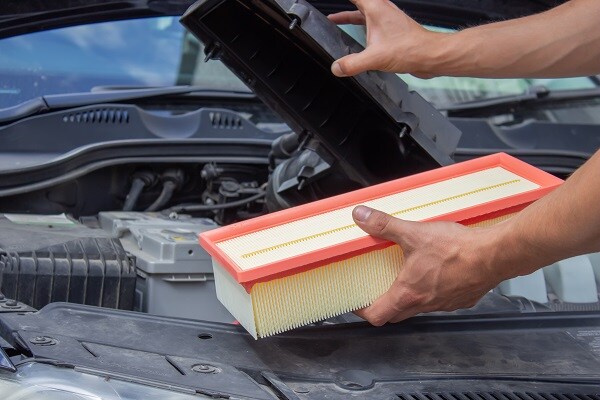
🧩 Understanding Your Car's Four Essential Filters
Most modern vehicles have four primary filters that help protect critical components and ensure smooth operation. Here's what they do:
1. Engine Air Filter
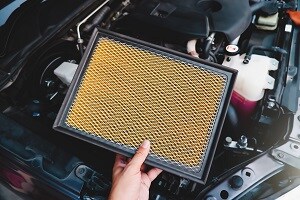 The engine air filter ensures that only clean air enters the combustion chamber. It traps dirt, dust, debris, and other contaminants, preventing them from mixing with the fuel-air ratio that powers the engine. A clogged air filter can lead to:
The engine air filter ensures that only clean air enters the combustion chamber. It traps dirt, dust, debris, and other contaminants, preventing them from mixing with the fuel-air ratio that powers the engine. A clogged air filter can lead to:- Reduced engine performance due to restricted airflow.
- Uses more fuel, as the engine struggles to compensate for the lack of oxygen.
- Increased wear and tear on internal components.
General Recommended Replacement: Every 12,000 to 15,000 miles, or more frequently if you drive in dusty or polluted conditions.
2. Cabin Air Filter
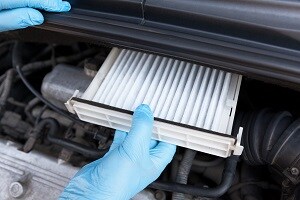 The cabin air filter cleans the air that enters the interior through the heating, ventilation, and air conditioning (HVAC) system. It filters out:
The cabin air filter cleans the air that enters the interior through the heating, ventilation, and air conditioning (HVAC) system. It filters out:- Dust and pollen
- Mold spores
- Pollution and engine exhaust fumes
- Allergens and bacteria
A dirty cabin air filter can lead to musty odors, reduced airflow from vents, and increased exposure to allergens, making it especially important for those with respiratory conditions.
General Recommended Replacement: Every 15,000 to 30,000 miles, depending on driving conditions.
3. Oil Filter
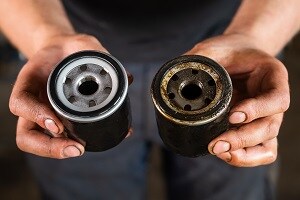 The oil filter removes dirt, metal particles, and sludge from engine oil, ensuring that only clean oil circulates through the system. This prevents wear and tear on internal components and keeps the engine lubricated properly.
The oil filter removes dirt, metal particles, and sludge from engine oil, ensuring that only clean oil circulates through the system. This prevents wear and tear on internal components and keeps the engine lubricated properly.If the oil filter becomes clogged, the oil won't flow efficiently, leading to overheating, increased friction, and even catastrophic engine failure. That's why changing the oil filter during every oil change is crucial to maintaining the life of your vehicle.
General Recommended Replacement: Every 3,000 to 5,000 miles (or per manufacturer guidelines). Many of today's modern vehicles require oils with precise physical properties, allowing for extended intervals between oil and filter changes. Your vehicle owner's manual serves as excellent guide for determining when to change the oil whether your vehicle employs sensors to monitor oil quality and recommend changes based on actual readings from your vehicle.
4. Fuel Filter
 The fuel filter is responsible for trapping contaminants before fuel reaches the engine. Clean fuel is essential for efficient combustion, and a dirty filter can cause:
The fuel filter is responsible for trapping contaminants before fuel reaches the engine. Clean fuel is essential for efficient combustion, and a dirty filter can cause:- Engine misfires
- Loss of power and acceleration
- Increased fuel consumption
- Difficulty starting the vehicle
Modern vehicles often have fuel filters built into the fuel pump inside the gas tank, making replacement trickier than it used to be.
General Recommended Replacement: Fuel filter replacement intervals vary significantly depending on the vehicle make and model: Older Vehicles & Traditional Fuel Systems: Every 20,000 to 40,000 miles. Modern Vehicles (Most Mainstream Brands): Every 60,000 to 100,000 miles. Luxury & High-Tech Fuel Systems (e.g., Mercedes-Benz, BMW, Some PHEV Hybrids): 120,000+ miles, with some manufacturers even recommending 150,000 miles. Then again, some models have "Lifetime" Fuel Filters (Integrated in Fuel Pump): There is no scheduled replacement unless a fuel system issue arises, and in most cases the entire fuel pump, which is located in the fuel tank must be replaced.
For exact fuel filter replacement intervals, check your owner's manual or consult a trusted service center like Central Vermont Auto Mart to determine when (or if) your fuel filter needs changing.
🛡️The Benefits of Keeping Your Car's Filters Clean
Better Fuel Efficiency - A clogged engine air filter can disrupt the fuel-air mixture, making the engine work harder. Regular replacement can improve fuel economy by allowing better airflow and combustion efficiency.
Increased Engine Longevity - Contaminants in the engine oil and fuel can cause excessive wear on internal parts. Regularly replacing the oil filter and fuel filter keeps your engine running smoothly and reduces the risk of costly repairs.
Healthier Cabin Air - A clean cabin air filter removes allergens, dust, and pollutants, making the air inside your car healthier for you and your passengers. This is especially important for people who suffer from allergies or asthma.
Preventing Costly Repairs - Neglecting filters can lead to bigger problems. For example, a dirty air filter can trigger the check engine light. A clogged fuel filter may damage the fuel pump, leaving you stranded on the side of the road, while a plugged oil filter can restrict oil flow and lead to engine failure. Replacing these filters on time helps you avoid being stranded and the potential for expensive repairs.

Don't Just Change Your Oil Filter-Use the Right Motor Oil!
When replacing your oil filter, it's just as important to use the correct motor oil blend and viscosity for your vehicle. Using the wrong type of oil can lead to poor lubrication, reduced engine efficiency, and even long-term damage.
Learn more about choosing the correct motor oil here: The Correct Viscosity Motor Oil Matters
🤔 Can You Replace These Filters Yourself?
Some filters are easy to replace at home, while others require professional expertise.
DIY-Friendly Filter Replacements
If you like tackling basic maintenance, you can replace these filters yourself with minimal tools:
Engine Air Filter - Usually located in a plastic air box in the engine bay. Most air filters have a simple clip-on or screw-on lid design to hold the filter in place, inside the fresh air intake system. It usually can be swapped out in about 10-15 minutes.
Can be swapped in 5-10 minutes.
Cabin Air Filter - Often located behind the glovebox or under the dashboard on the passenger side of the car. It can sometimes be accessed with no tools, or a minimum number of basic tools when required. Replacement takes about 15-20 minutes.
Filters That Usually Require a Professional
Some filters require specialized tools, knowledge or the ability to lift the vehicle to access the filter.
Oil Filter - Requires draining old engine oil. Though this can be accomplished with ramps or car jacks, it is safer to consider letting a shop with the proper vehicle lift to hoist the vehicle up and perform the oil and filter change. This maintenance item also involves handling hazardous waste (used motor oil), which needs proper disposal following environmental guidelines.
Fuel Filter - This can be part of the pressurized fuel system, which can be hazardous to work on without the proper knowledge and training. In some cars, the fuel filter is located inside the fuel tank, requiring the vehicle to be lifted on a hoist, fuel may need to be drained from the tank and can become a major project. Incorrect installation can cause fuel leaks or engine damage. If you're unsure about replacing a filter yourself, it's always best to schedule an appointment with a professional auto repair shop.
Keep Records of DIY Maintenance-It Could Save Your Warranty!
If you perform DIY maintenance on your vehicle while it's under manufacturer warranty, keeping detailed records is crucial. Always document the date, mileage, and type of service performed, and keep receipts for any oil, filters, or other replacement parts. This proves that you used the correct parts and followed the manufacturer's maintenance schedule. In the event of a warranty claim, the manufacturer may deny coverage if you cannot provide evidence that required maintenance was performed on time. A simple logbook with receipts for the parts can help protect your vehicle warranty and will help with your trade in or resale value.
⭐ Why Choose Central Vermont Auto Mart for Your Filter Replacement?
At Central Vermont Auto Mart, we make it easy to keep your vehicle running at its best. Our expert technicians provide quick, reliable filter replacements for all major filters, ensuring your car stays efficient, healthy, and safe.
Why Trust Us?
 Expert Technicians: Trained professionals ensure your filters are replaced correctly.
Expert Technicians: Trained professionals ensure your filters are replaced correctly.
Affordable Pricing: Competitive rates on filter changes and maintenance.

Proper Disposal: We handle hazardous waste safely and responsibly.

Convenient Scheduling: Book your service at a time that works for you.
Don't let clogged filters hold your car back! Schedule your filter replacement today at Central Vermont Auto Mart and breathe easy knowing your car is in top shape.
 Call us 802.200.3858 or visit our service center in Montpelier, Vermont at 365 River Street!
Call us 802.200.3858 or visit our service center in Montpelier, Vermont at 365 River Street!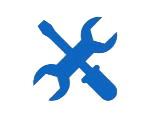 |
Friendly service. Clear explanations. No pressure. We've got you covered.
Want to learn more about caring for your
vehicle?
 Published March 11, 2025
Published March 11, 2025